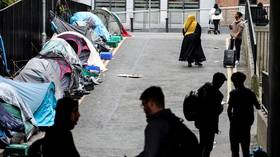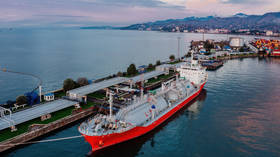UN looks to minimize impact of gas cutoffs
The United Nations has been discussing ways to offset the power of Gazprom after the conflict with Ukraine, which left millions of European families out in the cold.
The world’s leading energy experts have recommended rapidly building new underground storage.
A lack of gas storage facilities, particularly in Southern and Eastern Europe, has left many homes without heating. France stored enough to survive without Gazprom. Its utility GDF Suez’s now consulting states like Romania on new facilities according to Senior Asset Officer, Gilles-Henri Joffre.
“Two weeks ago, when Russian gas was already cut off, it was very cold all over Europe. On the coldest days we’ve withdrawn 60% of our consumption from storage. On these days, if we didn’t have some storage tools we could not have been able to supply our customers.”
Dutch producer Gasterra offset the crisis by releasing an extra 10% from its reserves. Its analyst, Dr Gerard Martinus, forecasts a storage building spree.
“If you look at the European situation there’s something like 60 Billion cubic meters of gas storage at present. That will have to increase by about half in 10 years time.”
The UN is now creating an international legal framework, to allow private firms like Gasterra to build new facilities across borders.
Formally this UN meeting was not called in response to Ukraine’s gas blockade, but time and time again delegates here brought up 'Gazprom' to justify urgent expansion of capacity. The UN’s recommendations now pass to national governments for implementation.













